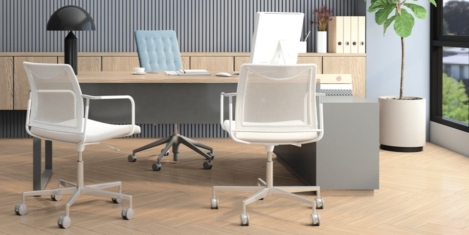To provide the best experiences, we use technologies like cookies to store and/or access device information. Consenting to these technologies will allow us to process data such as browsing behaviour or unique IDs on this site. Not consenting or withdrawing consent, may adversely affect certain features and functions.
The technical storage or access is strictly necessary for the legitimate purpose of enabling the use of a specific service explicitly requested by the subscriber or user, or for the sole purpose of carrying out the transmission of a communication over an electronic communications network.
The technical storage or access is necessary for the legitimate purpose of storing preferences that are not requested by the subscriber or user.
The technical storage or access that is used exclusively for statistical purposes.
The technical storage or access that is used exclusively for anonymous statistical purposes. Without a subpoena, voluntary compliance on the part of your Internet Service Provider, or additional records from a third party, information stored or retrieved for this purpose alone cannot usually be used to identify you.
The technical storage or access is required to create user profiles to send advertising, or to track the user on a website or across several websites for similar marketing purposes.
 One year on from the launch of Chat GPT, new data from Slack based on 10,000 global workers (including 1,000 the UK) suggests that UK companies believe there is much greater urgency to adopt Generative AI at work than US companies – yet uptake remains sluggish in both markets. According to the study, 61 percent of UK workers believe there is a high or existential need to incorporate Generative AI into work compared to just 44 percent of US workers who feel the same. (more…)
One year on from the launch of Chat GPT, new data from Slack based on 10,000 global workers (including 1,000 the UK) suggests that UK companies believe there is much greater urgency to adopt Generative AI at work than US companies – yet uptake remains sluggish in both markets. According to the study, 61 percent of UK workers believe there is a high or existential need to incorporate Generative AI into work compared to just 44 percent of US workers who feel the same. (more…)




































November 12, 2023
Want people to spend more time in the office? Give them a little piece of home
by Yaron Rosenblum • Comment, Workplace design